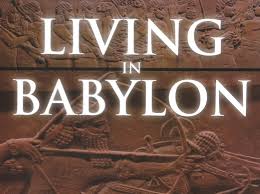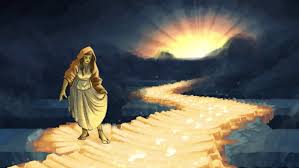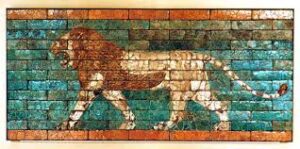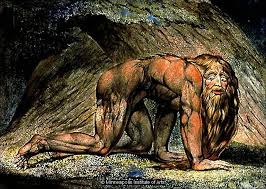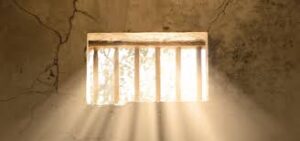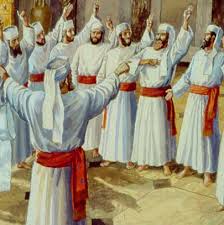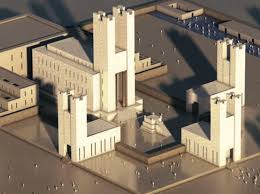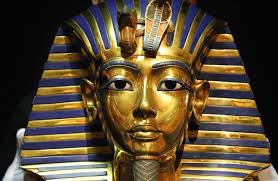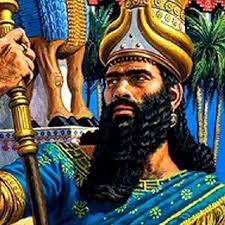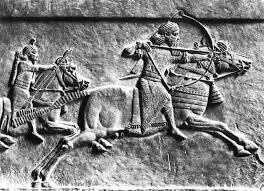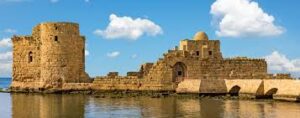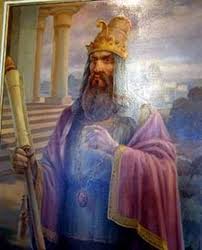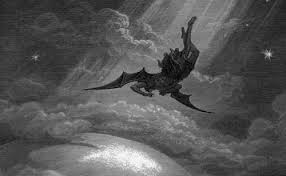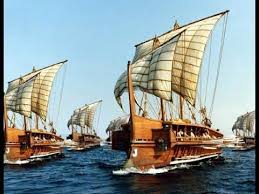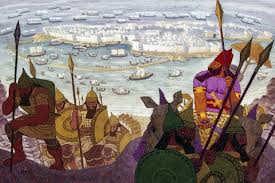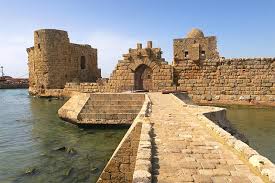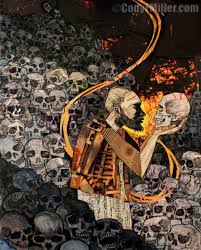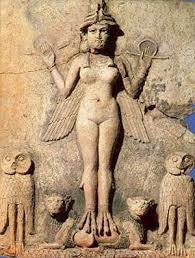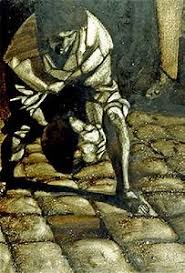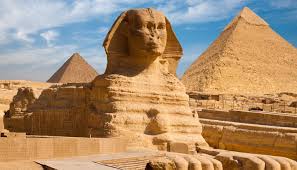Af – The Eight Covenants of the Bible
The Eight Covenants of the Bible

Since much of ADONAI’s relationship to mankind is based upon covenantal relationships is a very important aspect of correctly understanding Scripture. The most common way to divide the Bible is by dispensations. The dispensations, however, are based upon specific covenants, and knowledge of these covenants will help Bible readers to rightly divide the word of Truth (Second Timothy 2:15). Although the dispensations may come to an end, the covenants themselves often continue.
A. Types of Covenants: There are two types of covenants in the Bible: conditional and unconditional. It is important to distinguish between these two types of covenants in order to have a clear picture of what the Bible teaches.
- Conditional Covenants: A conditional covenant is a bilateral covenant in which a proposal of God to mankind is characterized by this formula: God says, “If you will do such-and-such, then I will do such-and-such.” In other words, ADONAI promises to grant special blessings to His people . . . providing mankind fulfills certain conditions contained in the covenant. Sometimes this is called a Suzerain-Vassal Covenant (see my commentary on Deuteronomy, to see link click Ah – Treaty of the Great King). One’s response to the covenant agreement brings either blessings or cursing. The blessings are secured by obedience and man must meet the conditions before God will meet His. Two of the eight covenants are conditional: The Edenic Covenant and the Mosaic Covenant.
- Unconditional Covenants: An unconditional covenant is a unilateral covenant and is a sovereign act of God whereby He unconditionally obligates Himself to bring to pass definite blessings and conditions for the covenanted people. This covenant is characterized by the formula: “I will . . .” which declares ADONAI’s determination to do as He promises. Blessings are secured by the grace of God. There may be conditions in the covenant by which God requests the covenanted one to fulfill out of gratitude, but they are not themselves the basis of God’s fulfilling His promises. Six of the eight covenants are unconditional: The Adamic Covenant, the Noahic Covenant, the Abrahamic Covenant, the Land Covenant, the Davidic Covenant and the New Covenant.
B. Covenants with Isra’el: Five of these covenants were made exclusively with Isra’el while the others were made with mankind in general. Only one of the five covenants made with Isra’el is conditional: the Mosaic Covenant. The other four covenants with Isra’el are all unconditional: the Abrahamic Covenant, the Land Covenant, the Davidic Covenant, and the New Covenant.
Four things should be noted concerning the nature of the unconditional covenants made with Isra’el. First, they are literal covenants and their contents must be interpreted literally as well. Second, the covenants that God has made with Isra’el are eternal and are not in any way restricted or altered by time. Third, it is necessary to re-emphasize that these are unconditional covenants that are not abrogated because of Isra’el’s disobedience; because the covenants are unconditional and totally dependent upon God for fulfillment, their ultimate fulfillment can be expected. Fourth, these covenants were made with my kinsmen according the flesh, who are Israelites, to whom belongs the adoption as God’ children, the Sh’khinah of the covenants has been with them (Romans 9:3-4). These verses clearly point out that these covenants were made with the covenanted people and are Isra’el’s possession.
This is brought out again in Ephesians 2:11-12, where we read: Therefore, remember your former state: you Gentiles by birth – called the Uncircumcised by those who, merely because of an operation on their flesh, are called the Circumcised – at that time had no Messiah. You were estranged from the national life of Isra’el. You were foreigners to the covenants embodying God’s promise. You were in this world without hope and without God. Five of the eight Bible covenants belong to the people of Isra’el and, as the passage notes, the Gentiles were considered foreigners to the covenants.
C. The timing principle of the covenants: A covenant can be signed, sealed, and made a special point of history, but this does not mean that all the provisions immediately go into effect. In fact, three different things happen once a covenant is sealed: first, some into effect right away; second, some provisions go into effect in the near future, which may be twenty-five years away or five hundred years away; and third, some provisions go into effect only in the distant prophetic future, not have been fulfilled to this day.
1. The Edenic Covenant (Genesis 1:28-30; 2:15-17; Hosea 6:7): The Edenic Covenant was made between God and Adam in the garden of Eden, in which Adam stood as the representative head of the human race. Thus, the actions of Adam are attributed to the whole of humanity. When man fell (Genesis 3:1-8), the Edenic Covenant, being conditional, came to an end, and was the basis for the Dispensation of Innocence (see the commentary on Genesis Ap – The Dispensations of God).
2. The Adamic Covenant (Genesis 3:14-19): God and Adam are involved in this covenant in which Adam again represented the whole human race. Thus, the judgment on Adam is a judgment on all humanity. God individually addressed the serpent, Satan, Eve, and Adam. The Adamic Covenant was the basis for the Dispensation of Conscience (see Genesis Bb – The Dispensation of Conscience). As an unconditional covenant, is it still in effect today.
3. The Noahic Covenant (Genesis 9:1-17): This covenant was made between God and Noah. Like Adam, Noah stood as the representative for the entire human race. As a result of the Flood, not only is all humanity descended from Adam, but also from Noah. The judgments of the Great Tribulation against the Gentiles will come because of violations of the Noahic Covenant. According to Isaiah 24:5-6, the judgment comes because humanity has violated the everlasting covenant, a name given to the Noahic Covenant in Genesis 9:16. The Noahic Covenant became the basis for the Dispensation of Civil Government (see Genesis Ct – The Dispensation of Civil Government). Although that dispensation has been superseded, the unconditional nature of the Noahic Covenant is in effect today.
4. The Abrahamic Covenant (Genesis 12:1-3, 12:7, 3:14-17, 15:1-21, and 17:1-21): God and Abraham are involved in this covenant, in which Abraham stood as the representative head of the whole Jewish nation, not for all humanity. Abraham was to be the father of a great nation, Isra’el. He was to possess all of the Promised Land. The nation of Isra’el was to become great, ultimately innumerable. It was to possess all of the Promised Land. It was to receive victory over its enemies. The fact that the promises were made to both Abraham and his seed shows that these blessings have not yet reached their fulfillment but await the Messianic Kingdom. The Gentiles would be blessed for blessing Isra’el and cursed for cursing Isra’el. Also, they were to receive spiritual blessings, but ultimately these were to come through one specific Seed of Abraham, the Messiah. While the physical blessings were limited only to the Jews, the spiritual blessings were extended to the Gentiles, but only through the Messiah. Reducing the Abrahamic Covenant to its very basics, it can be seen that it contained three aspects: the Land aspect, the Seed aspect, and the Blessing aspect. The Land aspect is developed in the Land Covenant; the Seed aspect is developed in the Davidic Covenant; and the Blessing aspect is presented in the New Covenant. The Abrahamic Covenant became the basis for the Dispensation of Promise (see Genesis Ds – The Dispensation of Promise). Because it is unconditional, it is still in effect even though it has remained largely unfulfilled. The ultimate fulfillment will come in the Messianic Kingdom.
5. The Mosaic Covenant (Exodus 20:1 to Deuteronomy 28:68): The parties involved in this covenant were God and Isra’el. The covenant was made with Isra’el and not merely with Moses acting as a representative of Isra’el (Exodus 19:3-8). The covenant was not made with the Gentiles or the Church, but with Isra’el only, a point also made in Deuteronomy 4:7-8; Psalm 147:19-20, and Malachi 4:4. A key provision of the Mosaic Covenant are the 613 commandments. This covenant was never given as a means for salvation (Romans 3:20 and 28; Galatians 2:16, 3:11 and 21). It was conditional, and resulted in blessings for obedience and curses for disobedience. For the purposes of the Mosaic Covenant see my commentary on Deuteronomy Ay – Moshe and the Torah. The clear-cut teaching of the B’rit Chadashah is that the Mosaic Covenant is no longer in effect as a result of the death of the Messiah (Romans 7:5-6 and 10:4; Gal 3:19 to 4:7; Heb 7:11-18; Jeremiah 31:31-34; Ephesians 2:14-15; Second Cor 3:3-11). The Mosaic Covenant was the basis for the Dispensation of the Torah (see the commentary on Exodus Da – The Dispensation of the Torah). Therefore, it has completely ceased to function as an authority over us and is no longer the rule of life for the believer. But today, it is our blueprint for living. The more we study and follow Torah, the more our lives will benefit.
6. The Land Covenant (Deuteronomy 29:1 to 30:20): This covenant was made between God and Isra’el, the same two parties as in the Mosaic Covenant. The importance of the Land Covenant is that it reaffirms the title deed to the Land as belonging to Isra’el. Although she would prove unfaithful and disobedient, this covenant says that the Land will never be taken from her. The Abrahamic Covenant teaches that ownership of the Land is unconditional. The Land Covenant received its confirmation centuries later in Ezeki’el 16:1-63. The Land aspect is developed in the Land Covenant, and being unconditional, is still very much in effect. Isra’el will repent at the end of the Great Tribulation (Hosea 6:1-3), the Messiah will return, Isra’el will be regathered and for the first time possess all of the Promised Land. Therefore, the Land Covenant was the basis for the Dispensation of the Messianic Kingdom (see the commentary on Revelation Fh – The Dispensation of the Messianice Kingdom).
7. The Davidic Covenant (Second Samuel 7:11b-16 and First Chronicles 17:10b-14): This covenant was made between God and David, who stands as the head of the Davidic House and Dynasty, the only rightful claimant to the Davidic Throne in Jerusalem. For the provisions of the Davidic Covenant see the commentary on the Life of David Ct – The LORD’s Covenant with David. The unique importance of the Davidic Covenant is that it amplifies the Seed aspect of the Abrahamic Covenant. According to the Abrahamic Covenant, the Messiah was to be the Seed of Abraham. This merely stated that He was to be a Jew and could come from any of the Twelve Tribes. Later, in Jacob’s day, the Seed aspect was limited to a member of the Tribe of Judah only (Genesis 49:10). Now the Messianic Seed aspect is further narrowed to one family within the Tribe of Judah, the family of David. The Davidic Covenant is an unconditional, eternal covenant. Thus, the Davidic Covenant is the basis for the Eternal State (see Revelation Fq – The Eternal State).
8. The New Covenant (Jeremiah 31:31-34): This unconditional covenant is made between God and Isra’el, and receives further confirmation in Isaiah 55:3, 59:21, 61:8-9; Jeremiah 32:40; Ezeki’el 15:60, 34:25-31, 37:26-28; and Romans 11:26-27. It is an unconditional covenant made with Isra’el and not the Gentiles or the Church. For the provisions of the New Covenant see the commentary on Jeremiah Eo – The Days are Coming, declares the LORD, When I Will Make a New Covenant with the People of Isra’el. The blood of Messiah is the basis of The New Covenant that reveals the blessing aspect of the Abrahamic Covenant. And since the Gentiles are grafted in (Romans 11:16-18), they are able to participate in the blessings of the New Covenant, but are not a “partner,” so to speak, with Isra’el in those blessings. As a result, the New Covenant is the basis for the Dispensation of Grace (see the commentary on Hebrews Bp – The Dispensation of Grace).
In conclusion, all spiritual blessings for believers are in Messiah, whether they are Jews or Gentiles. And through His death on the cross for our sins, believers reap spiritual benefits that would never be theirs otherwise. The eight covenants of the Bible are very explicit in their provisions and are valuable for a proper understanding of Scripture.



